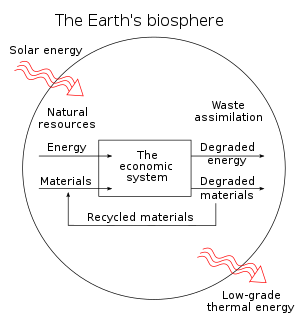Top 16 Quotes & Sayings by Herman E. Daly
Explore popular quotes and sayings by an American economist Herman E. Daly.
Last updated on December 21, 2024.
The laws of thermodynamics restrict all technologies, man's as well as nature's, and apply to all economic systems whether capitalist, communist, socialist, or fascist. We do not create or destroy (produce or consume) anything in a physical sense- we merely transform or rearrange. And the inevitable cost of arranging greater order in one part of the system (the human economy) is creating a more than offsetting amount of disorder elsewhere (the natural environment).
Even if we could grow our way out of the crisis and delay the inevitable and painful reconciliation of virtual and real wealth, there is the question of whether this would be a wise thing to do. Marginal costs of additional growth in rich countries, such as global warming, biodiversity loss and roadways choked with cars, now likely exceed marginal benefits of a little extra consumption. The end result is that promoting further economic growth makes us poorer, not richer.
If nonsatiety were the natural state of human nature then aggressive want-stimulating advertising would not be necessary, nor would the barrage of novelty aimed at promoting dissatisfaction with last year's model. The system attempts to remake people to fit its own presuppositions. If people's wants are not naturally insatiable we must make them so, in order to keep the system going.





















